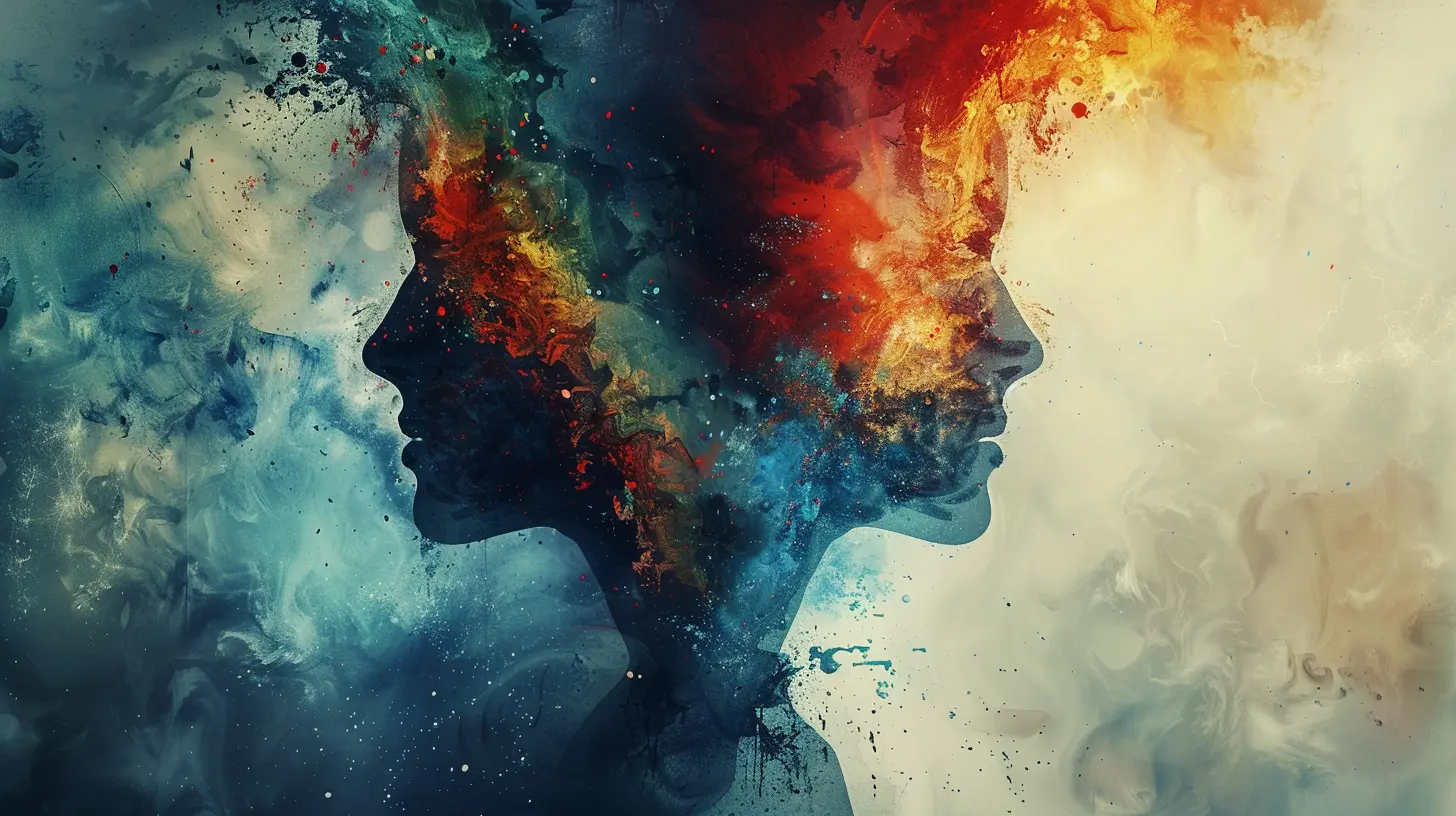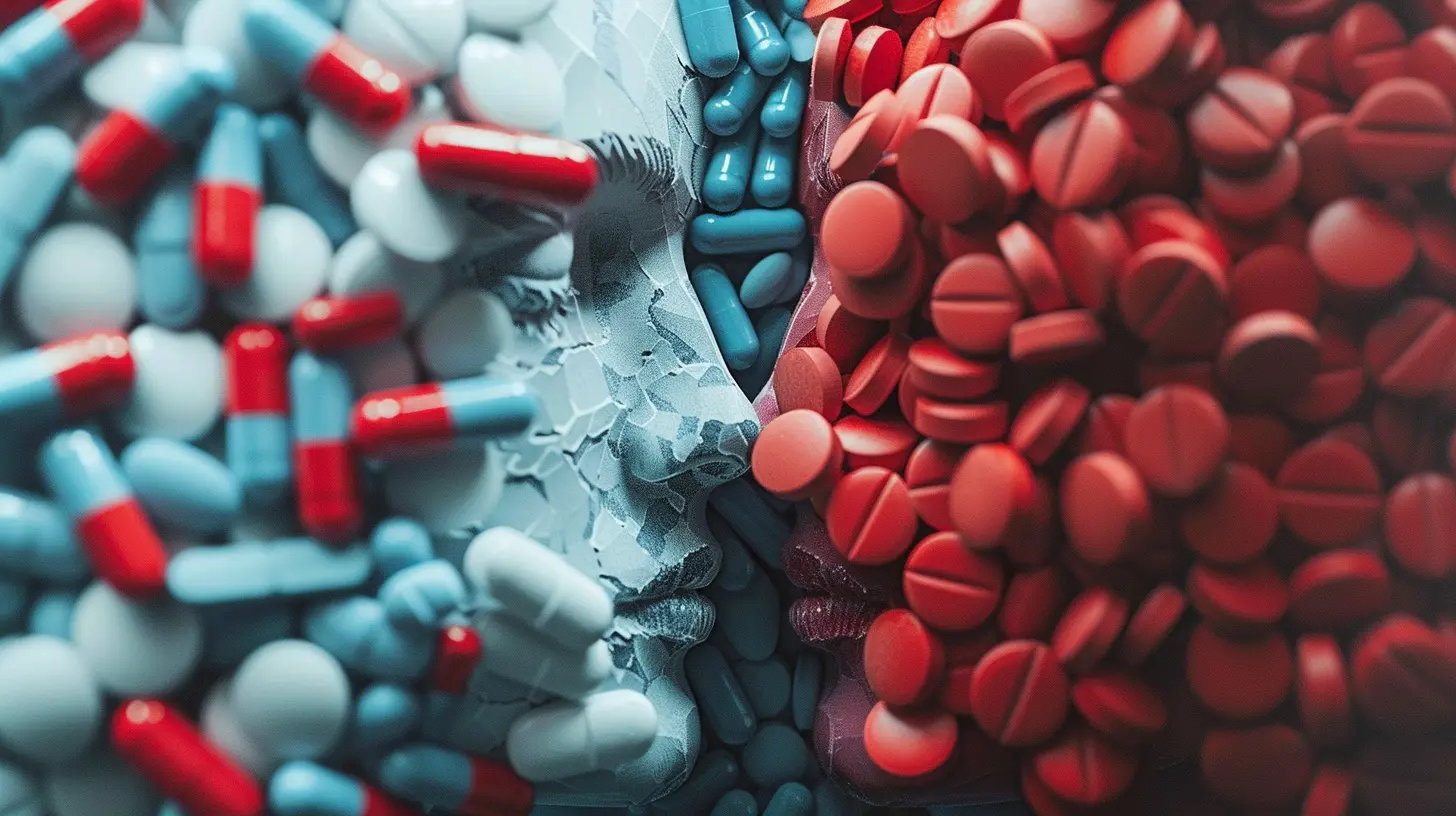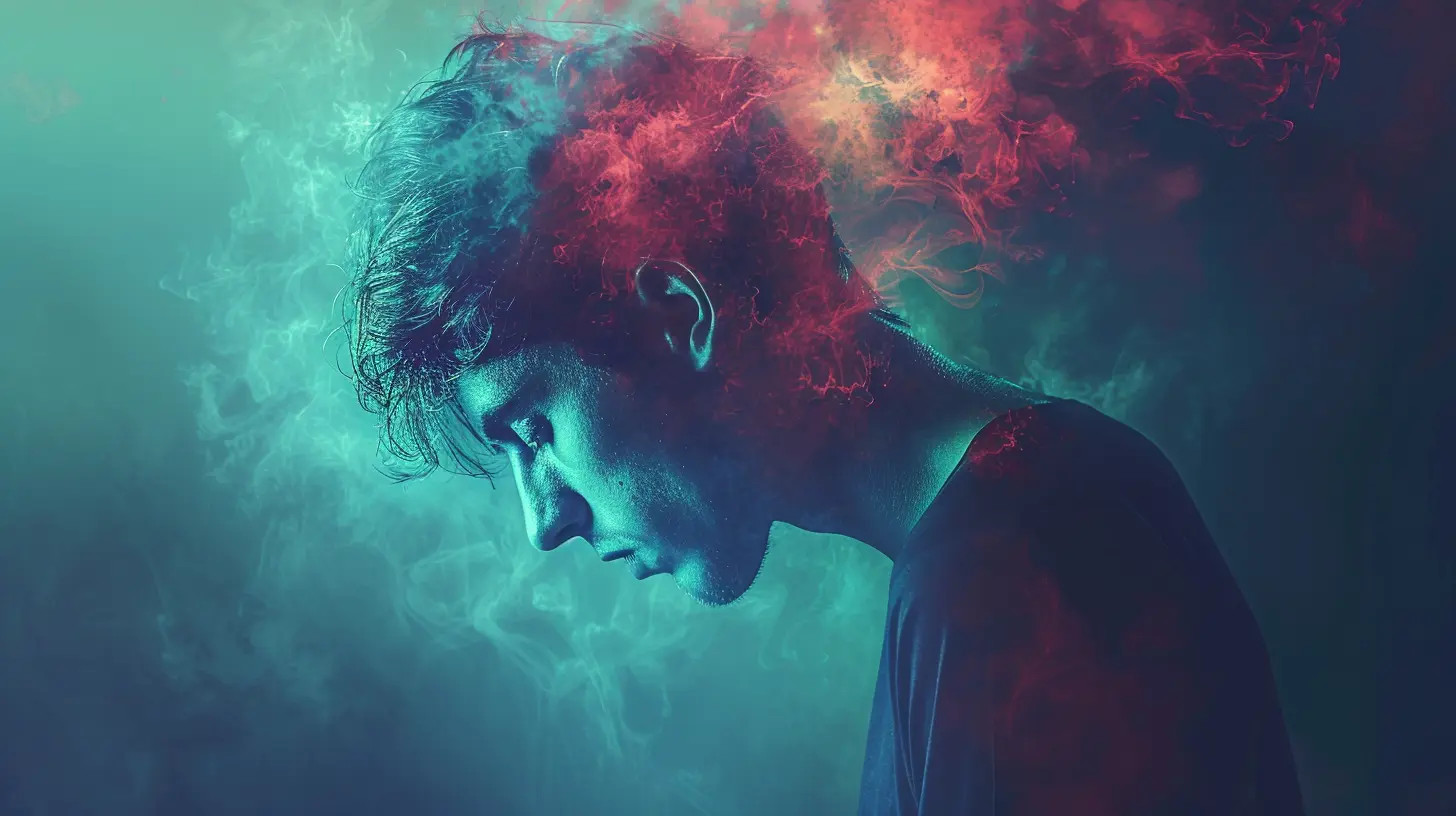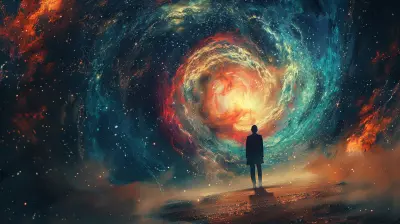The Challenges of Bipolar Disorder and Substance Abuse
20 November 2025
Living with bipolar disorder is already a tough journey, but when substance abuse enters the picture, it becomes an even steeper uphill battle. If you or someone you care about is dealing with both, you’re not alone, and understanding the connection between these two conditions can shed some light on why this combination is so challenging.
When we talk about bipolar disorder, we’re referring to a mental health condition that causes extreme mood swings between emotional highs (mania or hypomania) and lows (depression). Now, imagine trying to manage these intense mood shifts while also struggling with substance abuse, whether it's alcohol, drugs, or anything in between. It’s like trying to juggle flaming torches while walking on a tightrope.
But why do these two often go hand in hand? And more importantly, how can we address them effectively? Let’s dive into the complexities of bipolar disorder and substance abuse, explore why they’re such a combustible mix, and discuss strategies to manage this double-edged sword.

Understanding Bipolar Disorder
Before we jump into the relationship with substance abuse, let’s take a closer look at bipolar disorder. It’s not merely about mood swings; it’s about intense emotional states that can affect every part of a person’s life. The highs (mania or hypomania) can feel exhilarating at first, but they can quickly spiral out of control. On the flip side, the lows (depression) can be crippling, trapping people in a pit of despair.Symptoms of Bipolar Disorder
Bipolar disorder manifests in two main phases: manic and depressive episodes. Here’s a quick breakdown of what each looks like:- Manic Episode: During mania, individuals might feel euphoric, unusually energetic, and overly confident. They may engage in risky behaviors, like reckless driving, overspending, or substance use. Sleep tends to become less of a priority, and their judgment can be impaired.
- Depressive Episode: In contrast, depressive episodes are marked by overwhelming sadness, fatigue, and a loss of interest in activities. People may struggle to get out of bed, experience feelings of worthlessness, and, in severe cases, contemplate suicide.
This emotional rollercoaster can be exhausting, and it’s no surprise that many people with bipolar disorder turn to substances to cope.

Why Are Bipolar Disorder and Substance Abuse Linked?
There’s no single reason why substance abuse and bipolar disorder often occur together, but several factors seem to fuel this connection.1. Self-Medication
One of the most common reasons is self-medication. Imagine being in a manic episode—your brain is racing, you can’t sleep, and your thoughts are all over the place. Alcohol or drugs could seem like a quick fix to calm down. Conversely, during a depressive episode, substances might offer a temporary escape from the crushing sadness.People with bipolar disorder might use substances to numb the pain or gain a fleeting sense of control. Unfortunately, this is a dangerous path, as it often leads to addiction and worsens the symptoms of bipolar disorder.
2. Impulsivity and Risk-Taking
Bipolar disorder, particularly during manic episodes, is associated with impulsivity and a tendency to take risks. In a manic state, people tend to act on impulse without fully considering the consequences. This often leads to risky behaviors, such as substance use. When in a high-energy, euphoric state, someone might think, “Why not try that drug? What’s the harm?”—only to find themselves in a downward spiral later.3. Changes in Brain Chemistry
Bipolar disorder and substance abuse both involve changes in brain chemistry, particularly around neurotransmitters like dopamine and serotonin. These chemicals play a key role in mood regulation. When someone uses substances, they’re altering the brain’s chemical balance, which can further disrupt the already unstable mood swings associated with bipolar disorder. It’s like pouring gasoline on a fire.4. Genetic Predisposition
There’s also a genetic component. Studies have shown that people with a family history of both bipolar disorder and substance abuse are at a higher risk of developing both conditions themselves. It’s not just environmental factors; biology can also play a part in this dangerous combination.
The Vicious Cycle: How Substance Abuse Worsens Bipolar Disorder
Let’s be clear: using substances to cope with bipolar disorder symptoms doesn’t solve the problem—it makes it worse. Here’s why:1. Substance Abuse Can Trigger Mood Episodes
Alcohol is a depressant, and drugs like cocaine or amphetamines can induce mania-like symptoms. If you’re already prone to mood swings, using these substances can trigger or intensify manic or depressive episodes. You’re essentially pouring fuel on the fire, making your mood even more unpredictable.2. Interferes with Treatment
Managing bipolar disorder typically requires medication, such as mood stabilizers or antipsychotics. Substance abuse can interfere with how these medications work, either by reducing their effectiveness or causing dangerous side effects. Additionally, people struggling with addiction may skip taking their prescribed medications altogether, further destabilizing their mental health.3. Increased Risk of Suicide
Both bipolar disorder and substance abuse independently increase the risk of suicide. When combined, the risk becomes even more pronounced. During depressive episodes, alcohol and drugs can lower inhibitions, making someone more likely to act on suicidal thoughts. It’s a deadly combination.4. Poor Decision-Making in Manic States
Manic episodes are characterized by impaired judgment and impulsivity. Throw substance abuse into the mix, and it’s a recipe for disaster. Someone in a manic state may make reckless choices, such as driving under the influence or engaging in dangerous behaviors, without considering the consequences.
Breaking the Cycle: Treatment Approaches for Bipolar Disorder and Substance Abuse
The good news? There is hope. While treating co-occurring bipolar disorder and substance abuse is challenging, it’s not impossible. The key is to address both conditions simultaneously.1. Integrated Treatment
The most effective way to tackle this dual diagnosis is through integrated treatment, where both bipolar disorder and substance abuse are treated together. This might involve a combination of psychotherapy, medication, and support groups. Treating one condition without addressing the other is like fixing a leaky boat with duct tape—it’s only a temporary solution.2. Medication Management
Medications like mood stabilizers, antipsychotics, and antidepressants are often used to manage the symptoms of bipolar disorder. If substance abuse is also present, doctors may need to adjust the treatment plan to account for the effects of alcohol or drugs on the body. It’s crucial for individuals to be honest with their healthcare providers about substance use so that the right medications can be prescribed.3. Cognitive Behavioral Therapy (CBT)
Cognitive Behavioral Therapy (CBT) is a highly effective form of therapy for both bipolar disorder and substance abuse. In CBT, individuals learn to recognize harmful thought patterns and behaviors and develop healthier coping strategies. For example, instead of turning to alcohol during a depressive episode, someone might learn relaxation techniques or mindfulness practices to manage their emotions.4. Support Groups
Support groups, such as Alcoholics Anonymous (AA) or Narcotics Anonymous (NA), can provide a sense of community and accountability for individuals struggling with substance abuse. Additionally, there are support groups specifically for people with bipolar disorder, where individuals can share their experiences and offer encouragement. Having a strong support system is crucial for long-term recovery.5. Lifestyle Changes
In addition to therapy and medication, making certain lifestyle changes can play a significant role in managing both conditions. Regular exercise, a healthy diet, and a consistent sleep schedule can help stabilize mood swings. Avoiding triggers, such as stressful environments or certain social situations, can also reduce the temptation to use substances.The Importance of Early Intervention
The earlier someone seeks help for both bipolar disorder and substance abuse, the better their chances of recovery. Ignoring the problem or hoping it will go away on its own is not a viable option. If you or someone you know is struggling, it’s essential to reach out to a healthcare provider or mental health professional as soon as possible.
Conclusion: A Path Forward
Living with both bipolar disorder and substance abuse is undoubtedly challenging, but it’s not insurmountable. Understanding the connection between these two conditions is the first step toward recovery. By seeking integrated treatment, staying committed to therapy, and building a strong support network, individuals can find stability and lead fulfilling lives.It’s a tough road, but with the right tools, it’s entirely possible to manage both bipolar disorder and substance abuse. Remember, you don’t have to walk this path alone—help is available, and recovery is within reach.
all images in this post were generated using AI tools
Category:
Bipolar DisorderAuthor:

Jenna Richardson
Discussion
rate this article
1 comments
Evelyn Hill
Navigating the complexities of bipolar disorder and substance abuse is daunting, but resilience and hope shine through. Together, we can break the stigma, support recovery, and empower individuals to reclaim their lives and potential!
November 24, 2025 at 5:28 AM

Jenna Richardson
Thank you for your insightful comment! Together, we can foster understanding and support for those facing these challenges.


